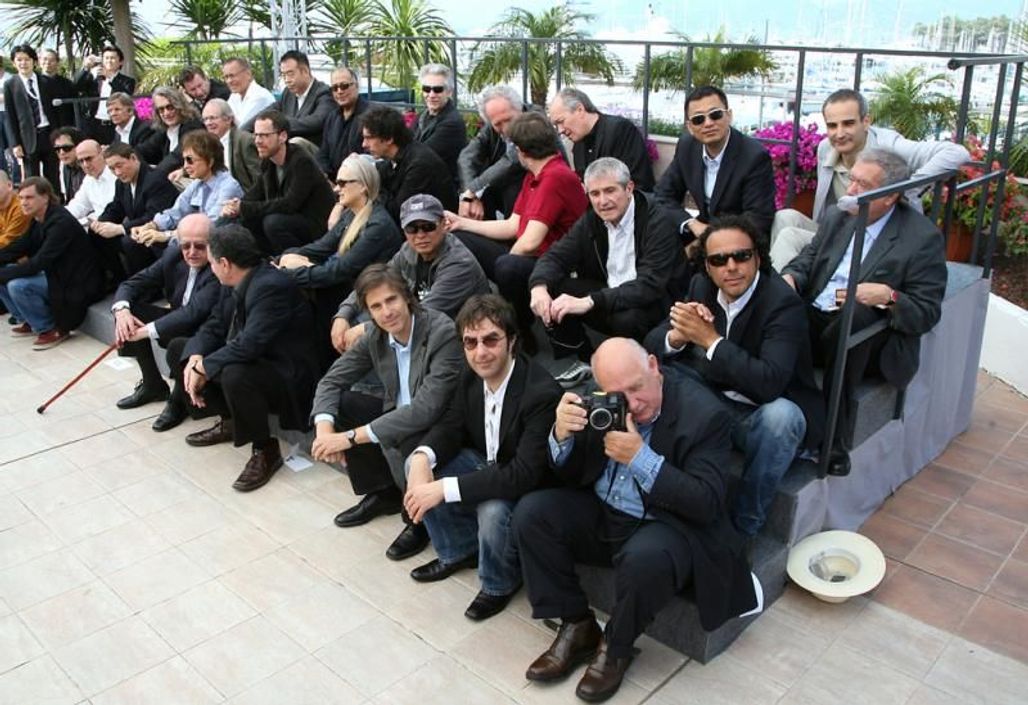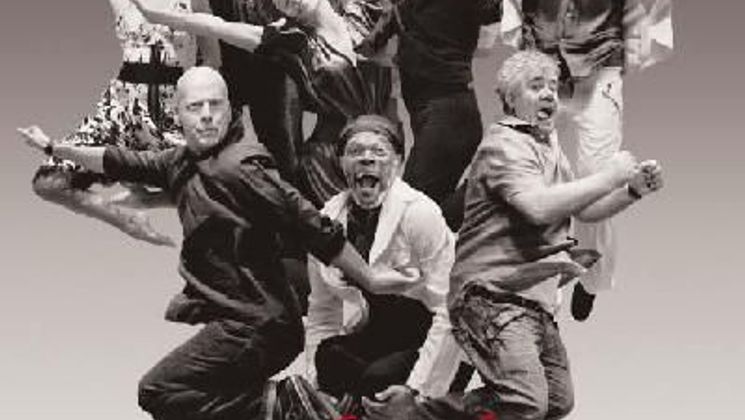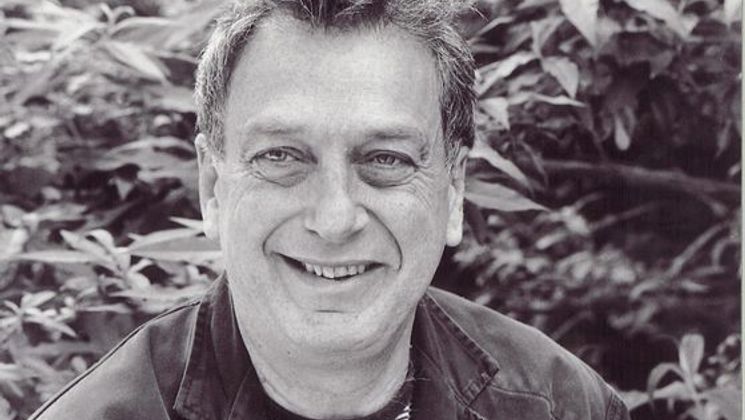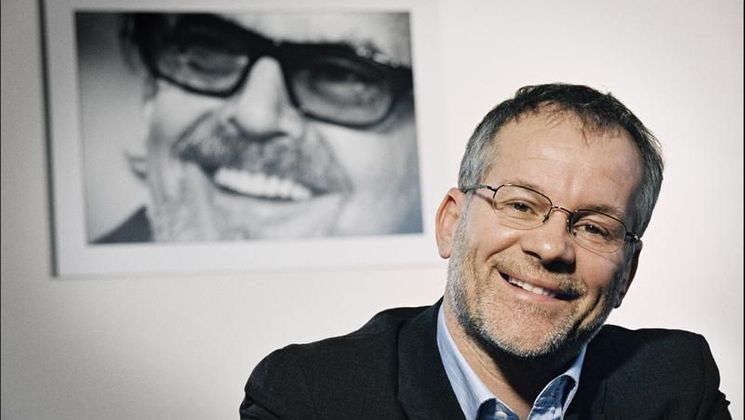
Press Conference: “To Each His Own Cinema”

For this 60th edition of the Cannes Festival, the most prestigious press conference every organized brought together before the international journalists most of the directors who participated in
the collective film To Each His Own Cinema. Those who answered favourably to Gilles Jacob’s request include: Theo Angelopoulos, Olivier Assayas, Bille August, Jane Campion,
Chen Kaige, Michael Cimiono, Joel and Ethan Coen, David Cronenberg, Jean-Pierre and Luc Dardenne, Manoel De Oliveira, Raymond Depardon, Atom Egayan, Amos Gitaï, Hou Hsiao Hsien, Alejandro
Gonzalez Iñarritu, Aki Kaurismäki, Abbas Kiarostami, Takeshi Kitano, Andrei Konchalovsky, Claude Lelouch, Ken Loach, Nanni Moretti, Roman Polanski, Raul Ruiz, Walter Salles, Elia
Suleiman, Tsai Ming Liang, Gus Van Sant, Wim Wenders, Wong Kar wai, and Zhang Yimou. Highlights follow.
Andrei Konchalovsky on the difficulties: “I think it’s more difficult trying to make a short film rather than a long, because the price of images is much higher. I mean you have so
few images to tell the story and that means that every image should be priceless, otherwise it shouldn’t be there. Of course the art of making films with priceless images are
gone…Pushkine, a great Russian poet, wrote in one of his long letters: ‘Excuse me, I didn’t have enough time to write you a short letter.’”
Walter Salles on his vision of cinema: “I think that if there is a lesson that is linked to this film itself, it’s about the possibility of seeing cinema as a collective adventure and
to learn from each other. For me cinema is only justified when it is done collectively and seen collectively…What I wanted to do in this short was celebrate the idea of Cannes with
Cannes being a reservoir, ‘un lieu de resistance’ as you say in French. I think it’s important. The more films that will be produced the more that festivals like Cannes will be
important.”
Takeshi Kitano on the To Each His Own Cinema experience: “I thought that making a three-minute film would be much less expensive in terms of both budget and effort than
making a feature. In the end, it took as much energy as making a long film would have. It was just as draining and wearying.”
Roman Polanski on his vision of short films: “My basic concept of short films has not changed at all. I have learned how to express faster but the main thing about the short film is that it
has to have a beginning and an end. Most of the short films that I see – and I see a lot of them because somehow I got involved in an organization that promotes the short film production – they
look like a reel from a feature. I remember already at film school, I was greatly disturbed by that. I think that a short film has to stand on its own and not be integrated into anything else.
It has to express an idea, a joke, a philosophy or whatever you want in a very short time so you have to find the best way of transmitting to your audience what’s on your mind. (…)
I just wanted to say that there is only one man in this world who could bring us all together and that’s Gilles Jacob. I would like to thank him and say, well-done!”
Jane Campion on being the only woman participating in this collective group: “My film, I suppose, is a homage to my favourite filmmaker, Buñuel. It’s a sort of feminist thing.
I think it’s really a reflection of how things really are right now. So much of the way we see the media or the world is written and thought up by men, we really don’t know what
women think. (…) It is strange to be with a great big football team like this…I think all of the men here, all of us would like to see more about how women think, how
they see the world. I think the feminine is such an important aspect to our humanity. We’re goddesses, we’re nurturing and I think the world would be a safer place if more
consciousness of femininity was available.”
Alejandro Gonzalez Inarritu on his artistic intentions in To Each His Own Cinema: “I feel very honored to be part of this amazing group of directors. Most of them I have
admired from a long time ago. Basically, the reason that I chose that was because the theme that I wanted to explore in that short film was an extension of what I had already explored in my
last film, Babel. I thought of what Mr. Konchalovsky was saying that this exercise of three minutes, it’s very difficult because in a feature film as in a boxing fight,
you can win over points in fourteen, fifteen rounds, but in a short film, you have to win by KO. There should not be one second of fat. In those three minutes. I wanted to explore how cinema
can surpass our physical limitation; our sensorial experience of cinema is beyond. I think cinema is more than that; it’s spiritual.”
David Cronenberg on the future of cinema: “I think that the cinema will no longer be the cinema. Whether that is going to be a good thing or a bad thing is something else. The form of the
cinema as we know it and love it is a thing of the past. I don’t know if it was bleak…But I think for the young people who are developing in this current technological information
environment, it’s still very exciting and stimulating as cinema was for us, but it’s very, very different. I don’t think that cinema, as cinema, will survive. I think
it’s not there already.”
Photo Copyright AFP


